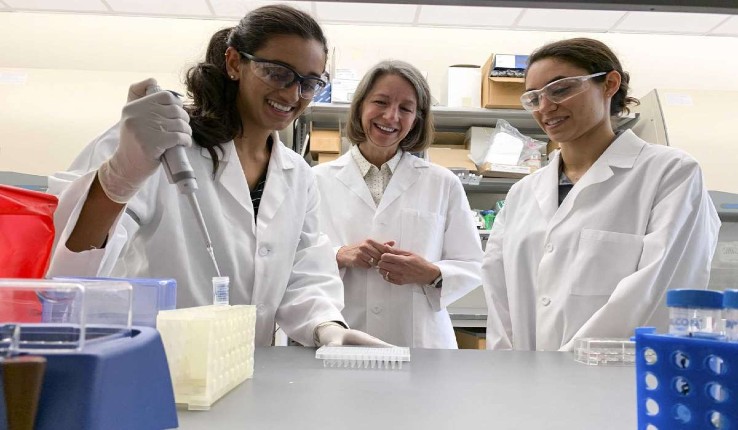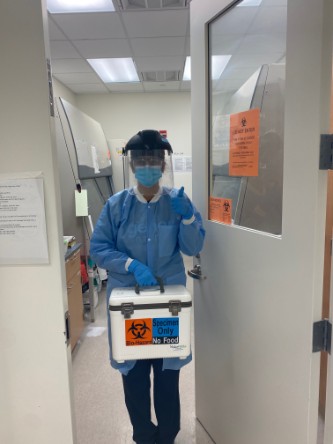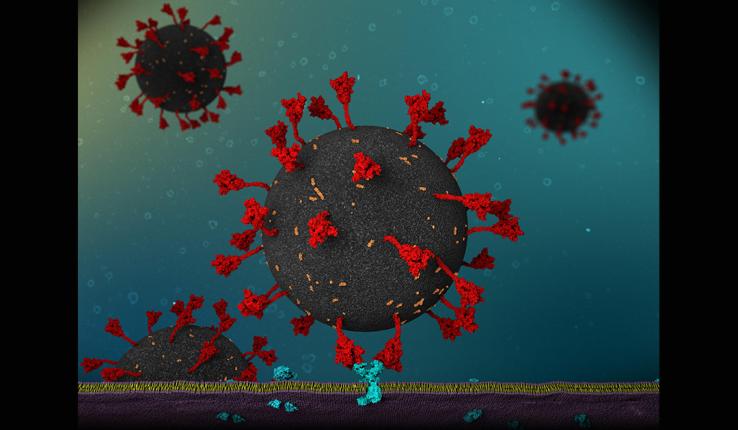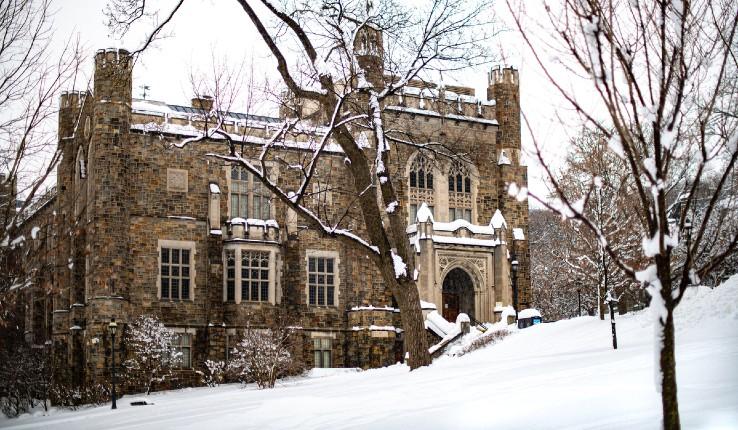“We wanted to get a test into the hands of our partners in Malawi and Mozambique as soon as possible,” Kundrod said. “We needed to develop it, validate it in the United States within the regulatory standards, and get it to our collaborators to use with their patients.”
The team is currently in the validation stage, running clinical studies in Houston. They’re comparing their test to that of the Centers for Disease Control and Prevention (CDC) and have nearly arrived at a prototype that works well. The next step will be to apply for the Food and Drug Administration’s Emergency Use Authorization that would allow a clinical lab to use the test in the United States. Kundrod said they hope to have a test ready for use by fall 2020.
Where the CDC test must be sent away to a lab for analysis and takes hours to run, Kundrod said her team’s test would take about 45 minutes to run on-site and could be performed without a high level of training. The applications for such a test, besides Rice’s partners in Africa, might include doctor’s offices, drive-through testing facilities, nursing homes and assisted living centers, prison populations, and even universities and K-12 schools.
The pandemic and temporary change in her research focus notwithstanding, Kundrod hopes to complete her Ph.D. and graduate by the end of the year. Perhaps because of her work during the pandemic, Kundrod’s career interests now include science policy—government work related to public and global health, and technology development.
“In some ways, it’s been really good to have something tangible to focus on in the pandemic. Most routine research has been shut down to limit the number of people in labs. Knowing we have the skill set to be able to contribute something here has been rewarding on a personal level,” she said. “It just feels like the right thing to do.”
Kundrod said her Lehigh experience was transformative in that she had no idea that she’d want to do research when she began working toward her Bachelor of Science in bioengineering. The first faculty member she met during a Lehigh admissions tour, Professor Sabrina Jedlicka, department of materials science and engineering, became Kundrod’s advisor and got her interested in research. Bioengineering Professor Susan Perry also cultivated a great interest in research and product development. Professor Xuanhong Cheng, departments of bioengineering and materials science and engineering, introduced Kundrod to the field her Ph.D. research involves, point-of-care diagnostics.
“From the moment I met Kathryn, I knew she was special,” Jedlicka said. “Her curiosity drove her to pursue opportunities she was passionate about and leading her fellow students in challenging projects with enthusiasm and humility. I’m not surprised she continues to lead in pursuing solutions to the COVID-19 pandemic.”
Story by Cynthia Tintorri






